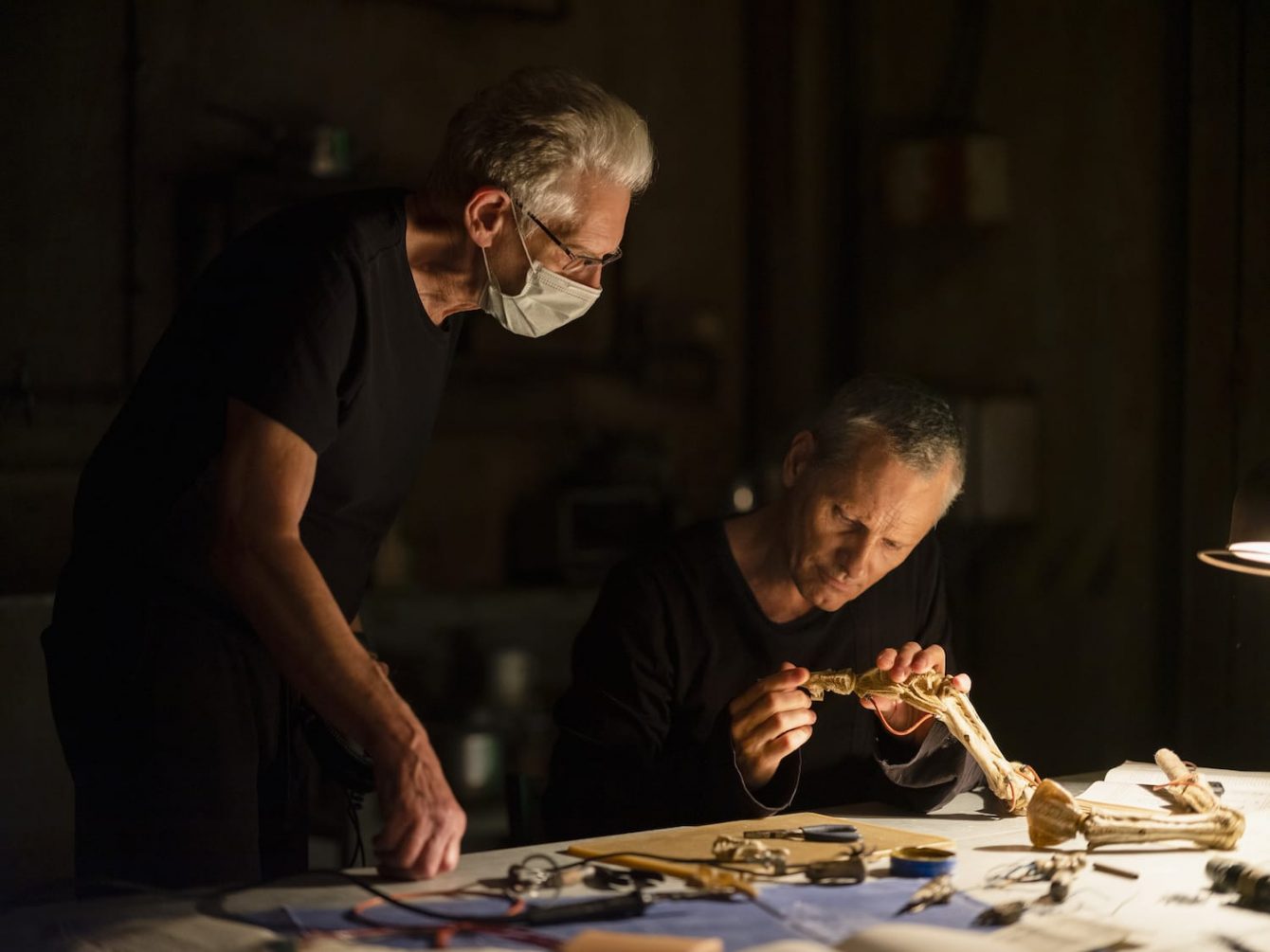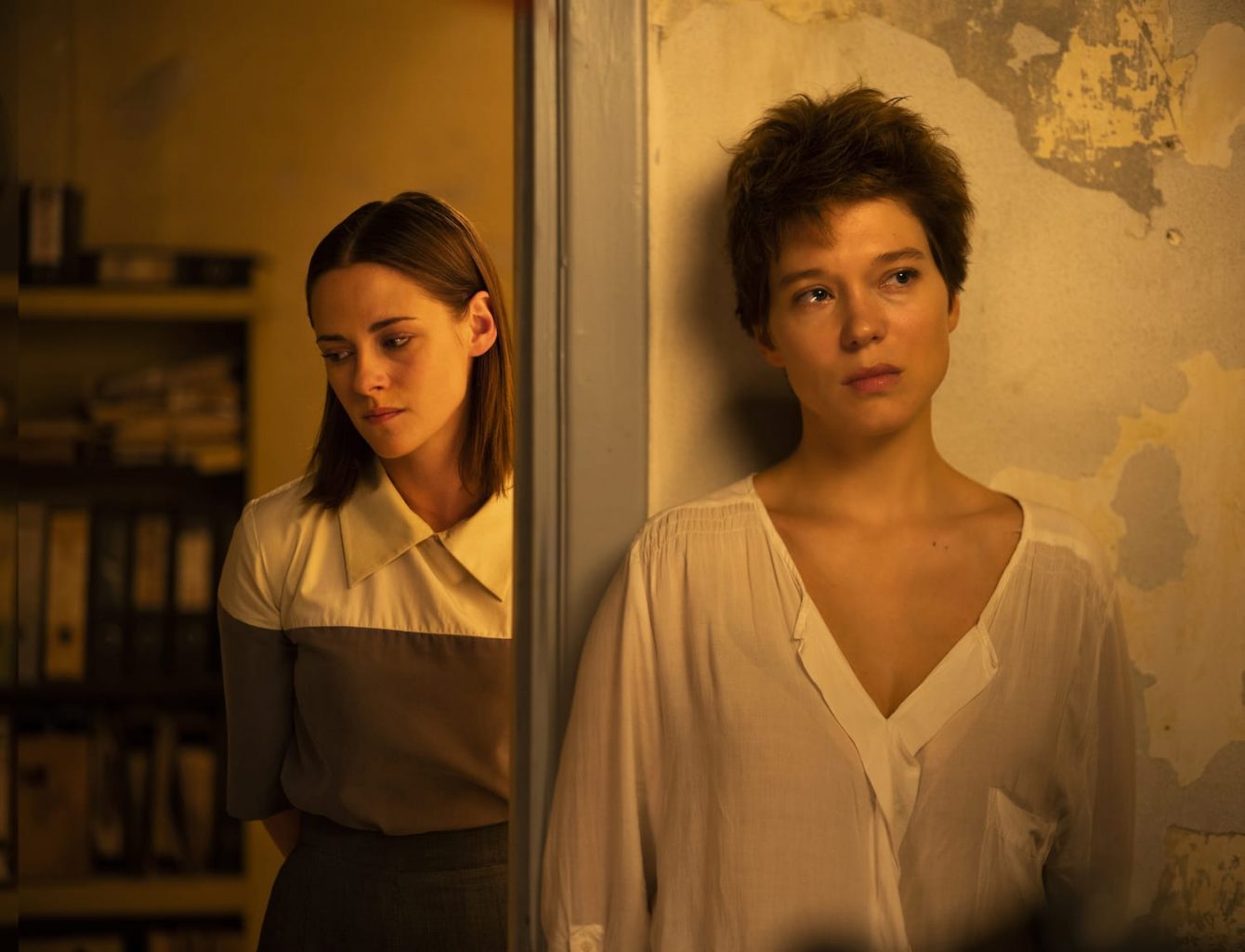In Crimes of the Future there is all of David Cronenberg’s cinema: a return to body horror that encompasses decades of filmography, without falling into self-referentiality: here is our preview review
ORIGINAL TITLE: Crimes of the Future. GENDER: horror, science fiction. COUNTRY: Canada, United Kingdom, Greece. DIRECTOR: David Cronenberg. CAST: Viggo Mortensen, Leah Seydoux, Kristen Stewart, Scott Speedman, Tanaya Beatty, Lehi Kornowski, Denise Capezza, Don McKellar, Yorgos Karamihos, Nadia Litz, Yorgos Pirpassopoulos, Welket Bungue, Ephie Kantza, Jason Bitter. DURATION: 107 minutes. PRODUCTION: Argonauts, Bell Media, Canadian Broadcasting Corporation, Coficiné, Ekome, Ingenious Media Ingenious Media, Serendipity Point Films, The Harold Greenberg Fund, Téléfilm Canada, Wiffle Films. ITALIAN DISTRIBUTION: Lucky Red. EXIT: August 26, 2022.
Crimes of the Future is David Cronenberg. Never as with this film, in fact, the identification between the director and his work is total: Crimes of the Future fully represents the paradigm between Cronenberg and art, taken to extremes and united with the human body, which becomes the same canvas of an artist. The Canadian filmmaker has in fact “created” a horror sub-genre, which places the human body and its relationship with emotions at the center of attention: the so-called body horror. Thanks to Lucky Red we had the opportunity to preview this film, in the original version with subtitles, which we definitely liked.

Inside Crimes of the Future is all of David Cronenberg’s cinema. There is the post-human, there is the sex appeal of the inorganic and even more carnal, the relationship of man with technology and with his own body. With these themes, with these watchwords, we take a leap into the past, at the time of Videodrome, The fly, The naked meal, Crash, eXistenZ. But, despite this dive into the past, the film maintains its relevance, ultimately not being self-referential, but faithful to itself. To keep up with the times, Cronenberg still finds the solution of him, narratively speaking.
The plot and the trailer | Crimes of the Future review
In a vaguely post-apocalyptic and post-noir near future, increasingly synthetic, technological and degraded (in the scenario of Greece), the organism of men is changing. There is no more pain, new and mysterious internal organs are born and develop, the body becomes an object of art and sex passes through surgery. There are those who change their body deliberately, those who instead see it change by itself, or by unconscious drive. Saul Tenser (Viggo Mortensen), to which new organs grow spontaneously, has made of his body (or rather, of the removal of these new inner appendages) a performance and a job, because in the world of Crimes of the Future surgery is the new frontier of theater. But Saul is also the informant of a new morality that deals with regulating the excesses linked to mutations: because overcoming the human is insurrectional. And what is worrying above all is a group of people who, artificially, have made their digestive system capable of processing plastic. In his shows Saul is assisted by his partner, Caprice (Léa Seydoux). Both their activity attracted Timlin (Kristen Stewart) e Tipped (Don McKellar), investigators of the National Register of Organs and of the father of the killed child (Scott Speedman).
Crimes of the Future, a project conceived for more than 20 years, therefore stands as the most radical synthesis of Cronenberg’s cinema to date. Viggo Mortensen’s cloaked figure is reminiscent of classic fantasy / horror, but his persona is quite different. The character of him, a famous performer artist, is a cross between Dracula and the Cronenbergian fly. The technological extension of one’s body still shows how creation and invention are the same thing in the filmography of the filmmaker. In his performances, Saul extracts works of art that come out directly from his own body, his own organs.
Provocation and monstrosity | Crimes of the Future review
Like all of Cronenberg’s films, Crimes of the Future must also be absorbed, metabolized. Piece by piece, shot by shot. Its beauty is not aesthetic but first of all physical. In the scars, in the list of organs that Saul offers during his performance, there is the ultimate limit of a show that takes shape before our eyes and from which we just have to let ourselves be guided. The Saul and Caprice shows have a macabre attraction and irresistible, but unsettling not only and not so much because of the explicity of many scenes, but because they could well represent a plausible scenario. If his previous cinema was forerunner, today Cronenberg talks about what we have become: fluidity, the breaking down of the separation of the genre, the coexistence with a no longer natural environment (in the capsized ship of the beginning and as a background during the film ) which results in the birth of a child who eats plastic.

With David Cronenberg, scandalous films, which have always been one of the characteristics of the festival, have returned to Cannes. This time it was the Canadian author himself who prepared audiences and critics for the perhaps too strong and extreme contents of his new work, Crimes of the Future, imagining and foretelling crowds of people who would leave the theater after the first minutes of the film (it is undeniable that someone has taken “breaks” from the vision). Under the motto “surgery is the new sex”Cronenberg loses all restraint: the film begins with an infanticide and continues with autopsies, surgical operations and non-traditional embraces to underline the distance of the old sex, which hardly anyone seems to remember.
Conclusions
In the finale, when all the themes of the film finally seem to come to the surface, all together, and come to fit almost perfectly, a strong sense of uneasiness really reaches the viewer. As we saw in our Crimes of the Future review the film is the ultimate body art, a conceptual work which summarizes the entire filmography of David Cronenberg and which sends a strong message about the future. Much stronger than the gruesome scenes on display.
Points in favor
- Visual and clear
- It fits fully into the director’s poetics
Points against
- The cast does not seem to fit well into the film at times
Are you looking for new movies and new TV series to watch? Discover the new subscription to Disney +, the streaming home of Disney, Marvel, Pixar, Star Wars, National Geographic and now Star too. Subscribe now to only € 8.99 per month on this page.
















Leave a Reply
View Comments